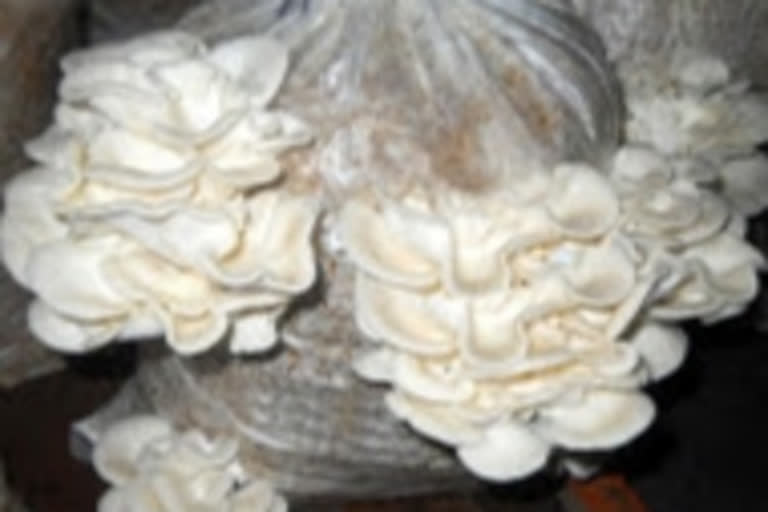Shimla (Himachal Pradesh): More farmers in tiny hamlets spread over Himalayan peaks of the picturesque Spiti Valley of Himachal Pradesh have been encouraged to go for the cultivation of the highly remunerative and protein-rich oyster or dhingri mushroom, officials said on Saturday.
This would supplement the income of the farmers in Lahaul-Spiti district who largely go for the traditional cash crops of green peas, potatoes, barley and wheat on the soil that is dry and lacks organic matter.
The crops are grown in summer only and cultivated in August-September.
"We have been trained to grow oyster mushroom that would increase its yield and supplement the income of local farmers," oyster mushroom grower Kalzag Ladde of Chichim village said.
He has been growing this mushroom variety since 2015.
Ladde is producing more than 150 kg of oyster mushroom and is supplying it to local hoteliers and homestay units in Kaza at a rate of Rs 250 to Rs 300 a kg.
As of now, 50 farmers have been trained for growing the oyster mushroom. They have been provided with its spawned bags to be incubated under room temperature, an official said.
Once produced in abundance, the mushroom can be utilised for pickles and medicines, etc., and its cultivation would provide direct employment to the womenfolk, he said.
The oyster mushroom is one of the most suitable fungal organisms for producing protein-rich food from various agro-wastes without composting having high medicinal value as well.
It is quite rich in vitamin C and B complex with protein contents varying between 1.6 to 2.5 per cent.
It has most of the mineral salts required by the human body such as potassium, sodium, phosphorus, iron and calcium.
It also has antibiotic properties, reduces bad cholesterol and is suitable for sugar patients as well.
Also read: 11-year-old ferries ailing father on trolley-rickshaw amid lockdown
The oyster mushroom is grown on the clean dry paddy straw that is soaked in water for 18 hours or so and mixed with a bottle of master spawn along with horse gram powder.
The mixture is filled into polyethene bags and kept at room temperature.
The compact mass is watered regularly until the mushroom starts growing all over.
The Spiti Valley, the paradise that straddles both India and Tibet, comprising over two dozen small, scattered villages, remains cut off owing to heavy snow accumulation for at least six months in the year.
It reopens once the snow starts thawing after mid-April.
IANS Report



